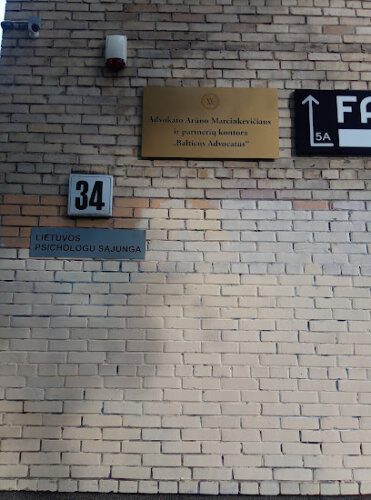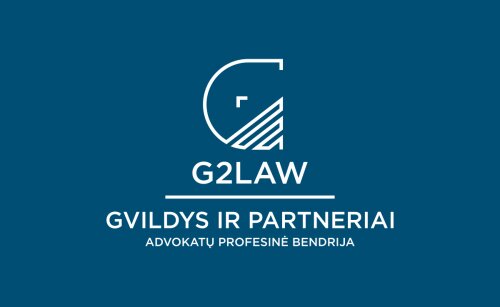Best Animal Law Lawyers in Republic of Lithuania
Share your needs with us, get contacted by law firms.
Free. Takes 2 min.
Or refine your search by selecting a city:
List of the best lawyers in Republic of Lithuania


About Animal Law in Republic of Lithuania
Animal Law in Lithuania encompasses a wide range of legal issues pertaining to animals, including their treatment, rights, and welfare. The laws aim to ensure the humane treatment of animals, whether they are pets, livestock, or wildlife. The legal framework endeavors to strike a balance between human interests and animal rights, providing protection against abuse and neglect while promoting responsible pet ownership and ethical treatment of all animals.
Why You May Need a Lawyer
Individuals may require legal assistance in Animal Law for a number of reasons. Common situations include disputes over pet custody during divorces, accusations of animal cruelty or neglect, issues related to service animals and public access, conflicts involving livestock and agricultural activities, and navigating compliance with animal welfare regulations. A lawyer specialized in Animal Law can provide guidance and representation to ensure that your rights and the rights of the animals involved are protected.
Local Laws Overview
Lithuania has several key legal aspects relevant to Animal Law:
- Animal Protection Law: This sets standards for the ethical treatment and welfare of animals, prohibiting acts of cruelty and ensuring proper care.
- Livestock and Agricultural Regulations: These laws include guidelines on the housing, feeding, and general treatment of farm animals.
- Pet Ownership Rules: There are specific obligations for pet owners regarding registration, vaccination, and control of pets in public spaces.
- Wildlife Conservation Acts: These laws aim to protect native wildlife species and their habitats, regulating hunting and other interactions.
Frequently Asked Questions
What are the legal responsibilities of pet owners in Lithuania?
Pet owners must register their pets, ensure they are vaccinated, and comply with care standards, such as providing food, water, and shelter. Owners are also responsible for their pets' behavior in public.
What constitutes animal cruelty under Lithuanian law?
Animal cruelty includes any deliberate act that causes unnecessary pain or suffering to an animal. This can range from physical abuse to neglecting basic care needs.
How do I report animal abuse in Lithuania?
Cases of suspected animal abuse should be reported to local animal control authorities or the police. Providing evidence, such as photographs or witness statements, can support investigations.
Are there laws regulating dog breeds in Lithuania?
While there are no specific breed bans, owners of certain breeds may need to adhere to additional regulations, such as muzzling in public and ensuring the dog is not aggressive.
Can landlords restrict pet ownership in rental properties?
Landlords can impose restrictions on pet ownership in rental agreements. Tenants should review these terms carefully before signing a lease.
What should I do if bitten by an animal in Lithuania?
Seek immediate medical attention and report the incident to local authorities. The owner of the animal may be liable for any injuries caused.
What steps should be taken if a pet is lost?
Contact local animal shelters and veterinary offices. It's also advisable to place advertisements online and in the community to help locate the missing pet.
Are there specific regulations for animal shelters?
Yes, animal shelters must meet certain standards for animal care, housing, and health management to ensure the welfare of all sheltered animals.
How are livestock welfare laws enforced?
Livestock welfare is monitored by veterinary and agricultural authorities, who conduct inspections and enforce compliance with regulations.
Are there penalties for violating animal welfare laws?
Yes, violations can result in fines, imprisonment, or both, depending on the severity of the offense. Penalties are in place to deter violations and protect animal rights.
Additional Resources
Consider consulting the following resources for additional information:
- State Food and Veterinary Service: This governmental body oversees animal welfare regulations and conducts inspections.
- Lithuanian Society for Animal Protection: A non-governmental organization that provides support and advocacy for animal rights.
- Local Veterinary Clinics and Shelters: These can provide advice and services for pet care and responsibilities.
Next Steps
If you need legal assistance related to Animal Law, consider the following steps:
- Document Everything: Collect all relevant documentation and evidence related to your case, as this will be crucial for legal consultations.
- Seek Professional Legal Advice: Consult with a lawyer specializing in Animal Law for personalized guidance and representation.
- Know Your Rights: Educate yourself on your rights and obligations under Lithuanian law to better navigate legal proceedings.
- Engage with Local Authorities: If appropriate, communicate with local animal control or welfare authorities for guidance and support.
Lawzana helps you find the best lawyers and law firms in Republic of Lithuania through a curated and pre-screened list of qualified legal professionals. Our platform offers rankings and detailed profiles of attorneys and law firms, allowing you to compare based on practice areas, including Animal Law, experience, and client feedback.
Each profile includes a description of the firm's areas of practice, client reviews, team members and partners, year of establishment, spoken languages, office locations, contact information, social media presence, and any published articles or resources. Most firms on our platform speak English and are experienced in both local and international legal matters.
Get a quote from top-rated law firms in Republic of Lithuania — quickly, securely, and without unnecessary hassle.
Disclaimer:
The information provided on this page is for general informational purposes only and does not constitute legal advice. While we strive to ensure the accuracy and relevance of the content, legal information may change over time, and interpretations of the law can vary. You should always consult with a qualified legal professional for advice specific to your situation.
We disclaim all liability for actions taken or not taken based on the content of this page. If you believe any information is incorrect or outdated, please contact us, and we will review and update it where appropriate.
Browse animal law law firms by city in Republic of Lithuania
Refine your search by selecting a city.












